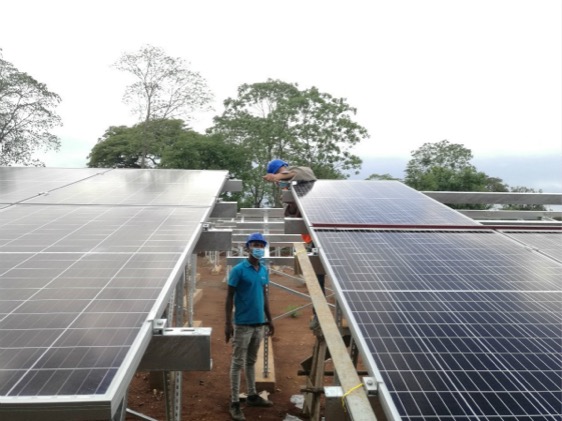Green goals stretch energy-starved continent


While the world is pushing for net-zero emissions to address climate crisis, the target is still a challenge to Africa as the continent struggles to provide sufficient energy to its population.
According to a report from the African Energy Chamber released on Tuesday, the rapid moves to attain net-zero emissions at all costs will have severe impacts on Africa's oil, gas and power sectors, which are a critical source of employment, foreign exchange earnings, and are key to providing affordable and reliable power to the entire economy.
The African Development Bank estimates that over 640 million Africans lack access to electricity and with the continent's population expected to double by 2050, there is a significant generation deficit.
The African Energy Chamber estimates that Africa's power generation capacity should increase from the current 848.6 terawatts to 2,622 terawatts in 2040 in order to develop its economy.
The report said conventional fuels, which account for about 61 percent of total electricity generation, are expected to play a huge role in alleviating poverty in Africa and can contribute to energy access improvement across a range of economies, sectors, and communities.
However, declining oil, gas and coal markets are presenting trouble for sub-Saharan Africa countries in their efforts to increase energy access.
Additionally, employment in oil, gas and coal is also expected to drop significantly, due to the falling demand and the gradual shift toward renewable sources.
The International Energy Agency estimates that around 5 million jobs will be lost in oil, gas and coal industries by 2030 globally.
Few of those losses are expected from Africa, due to the continual production of oil and gas, and the low likelihood of adopting net-zero emission targets.
The report estimates employment in the oil and gas industry in Africa will decrease on average 12.5 percent per year by 2030 and a further 30 percent between 2030 and 2040, under the net-zero emissions target.
However, under net-zero emissions, the millions in rural Africa lacking electricity and clean cooking options will have a higher likelihood of employment in new business ventures from clean energy technologies to stimulate new industrial capacities.
Therefore, given the rising global shift toward energy transition and renewable energy, the report said Africa could take advantage of the vast renewable energy potential, energy efficiency and other minerals to fast-track the growth of clean energy industries.
The report said focusing on renewables over fossil fuels allows job creation and economic growth, as well as climate change mitigation.
However, the report recommended extreme caution not to paint the picture that the whole continent needs to decarbonize its electricity mix.
The report said 75 percent of electricity generated in West Africa comes from conventional fuels, based on an abundance of environmentally friendly natural gas found in the region.

































